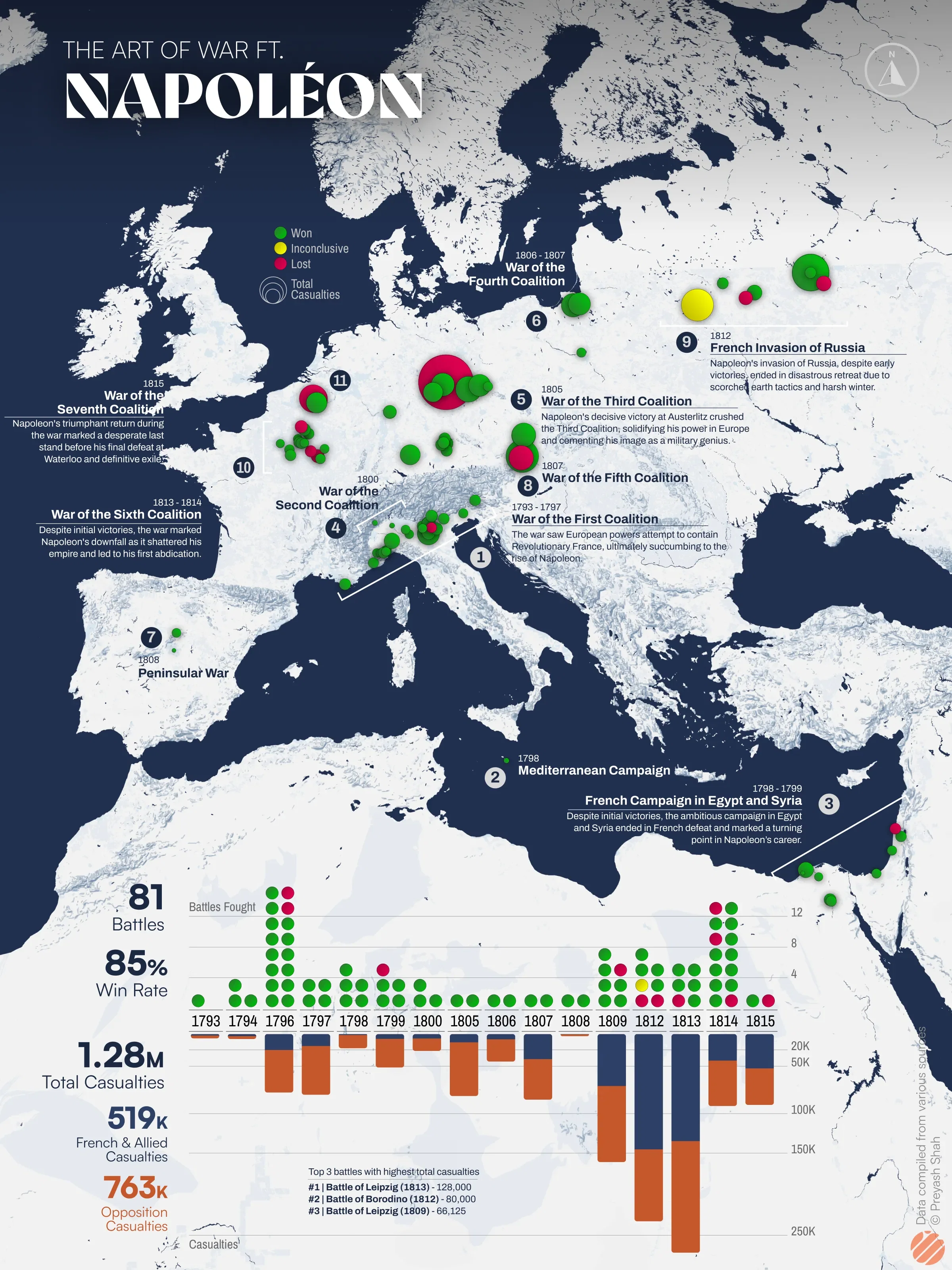Where Data Tells the Story
© Voronoi 2025. All rights reserved.

Subscribe to Insight Scoop to get amazing visualizations in your Inbox >> insightscoop.substack.com
----
Napoleon Bonaparte had a two-decade-long military career. He led the French forces in the French Revolutionary Wars and later the Napoleonic Wars as emperor, where he racked up numerous victories.
Despite his impressive battlefield acumen, his career met its end in defeat.
Though ultimately defeated, Napoleon is considered a military mastermind and one of history's finest commanders. He fought in over 80 battles, with only eleven defeats.
The disastrous 1812 invasion of Russia marked a turning point in his career. The French empire swiftly collapsed, which led to Napoleon's 1814 defeat and exile to Elba.
Later he briefly returned to power, but it did not last long! Napoleon faced his final defeat at Waterloo in 1815. He spent his final days under British custody on the isolated island of Saint Helena.
Napoleon’s remarkable military career can be divided into three distinct phases, each with its own defining characteristics and impact on his legacy.
Phase 1: Early Victories and the Seeds of Ambition (1792-1801)
Phase 2: Consolidation of Power and the Napoleonic Empire (1803-1809)
Phase 3: Hubris, Overextension, and the Road to Exile (1812-1815)
Napoleon's military career remains a subject of intense debate. His brilliance and innovations are undeniable, but his legacy is also marred by the immense human cost of his wars - a few million!
He remains a controversial figure, but his impact on military tactics, strategy, and even modern warfare cannot be contested. His story serves as a cautionary tale of ambition, highlighting the fleeting nature of power and the devastating consequences of unchecked expansionism.
I hope you enjoyed the visualization, I would like to know your thoughts!